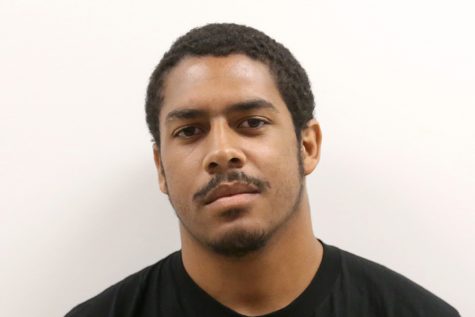Oakland comedy embraces culture
Absurd humor, biting satire drive webseries
Marcus, played by Dontae Clark (left), Benny, played by Santiago Rosas (middle), and Nina, played by Reyna Amaya (right) deliver biting satire in the new comedy webseries “The North Pole.”
Sep 25, 2019
A great satire is able to weave many different issues into one narrative. Connecting the intersections of climate change, gentrification, immigration and gun violence in Oakland is what “The North Pole,” accomplishes so well.
The web series, available on YouTube, produced by Rosario Dawson, chronicles the lives of young Oakland natives trying to find solutions to Oakland’s changing tides.
It accomplishes this through a series of schemes to fight back against the establishment and outsiders.
With one season under its belt, “The North Pole” has developed a unique style inspired by other absurdist satirical shows like HBO’s “Silicon Valley” and some classic sketch shows found on the IFC Network a decade ago — but with an Oakland flair.
Director and Oakland native Yvan Iturriaga does a wonderful job capturing the spirit of Oakland on camera. Soundtrack, locations, wardrobe and dialogue all feel authentically Oakland with even establishing shots having Easter egg references for the Bay Area natives watching along.
It certainly helps that two of the main characters, Nina (Reyna Amaya) and Marcus (Dontae Clark), are played by actors raised in Oakland.
Their delivery of slang is natural and clearly lent their experiences to the creative process.
In the show’s second season, released this month, crew members find themselves following up on the events of season one, which focused heavily on fighting gentrification in Oakland.
After taking on tech startup GreenGos and battling rent hikes pushing Oakland natives out, they find themselves fighting another relevant issue.
Facing the threat of deportation, Benny (Santiago Rosas) decides to run for Alameda County sheriff against incumbent and seasoned politician Laura Stevens (Laurie Burke). During the season,
Benny, Nina and Marcus try a number of schemes to help Benny’s underdog campaign succeed.
The show’s humor is absurd, playing off caricatures of aspects of Silicon Valley tech culture, woke liberals and youth revolutionaries.
One hilarious scene finds Marcus being assigned to create a campaign ad. During the focus group, people compliment his graphic design style for being wonderfully “at risk” and bursting with that much desired “urban flavor.”
Nina is a social media savvy revolutionary who finds herself growing so concerned with her online life that she fails to stay connected with those around her.
Finn (Eli Marienthal) is the white friend of the group whose increasingly left political stance, inspired by his roommates, is at odds with his racist, yet wealthy, family.
Each of the characters in the show is exaggerated and has a surreal slant to how they act. However, for anyone who has spent an extended period of time in Oakland, they feel increasingly realistic.
Through all this absurdity, the show does a great job with Marcus playing the straight man in the center of all the madness.
This gives the viewer an anchor as they navigate the world of “The North Pole.”
Each of the roughly 10-minute episodes is filled with interesting twists and funny jokes to keep the viewer’s attention.
Each episode’s short length keeps the editing tight and rarely does a joke overstay its welcome.
One particularly fun episode, and what seemingly has become a trope for the show’s influencers, is the patented drug episode where the main characters get way too high.
Another notable episode is the finale. A powerful monologue by Benny and a dreamlike closing sequence make a perfect conclusion for a great series.
“The North Pole” is a quality series that is perfectly binge-able and made for easy consumption through YouTube.
While the episodes are short, they are filled with great humor, good cinematography and an extra something for its viewers from Oakland.



